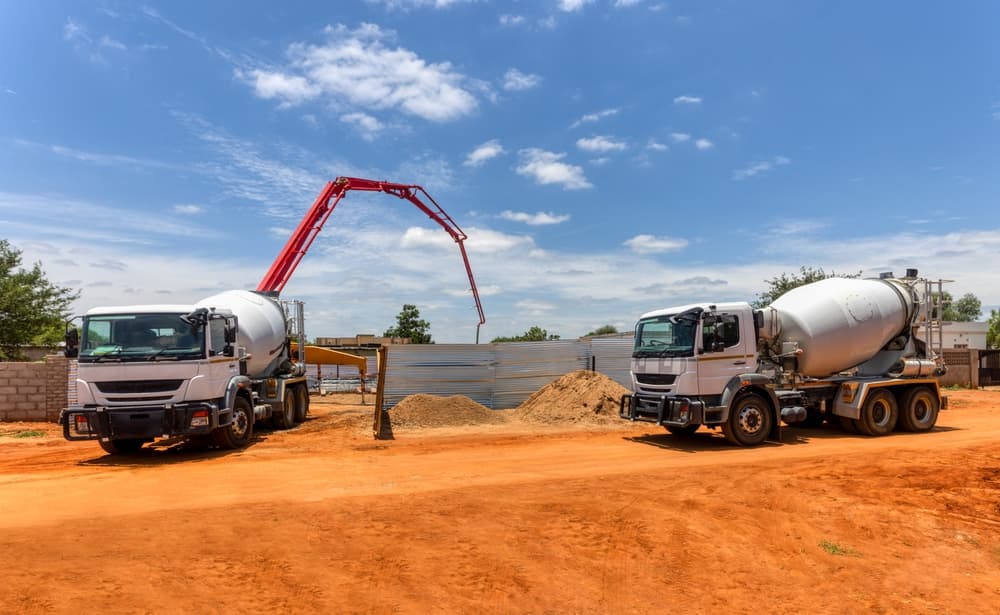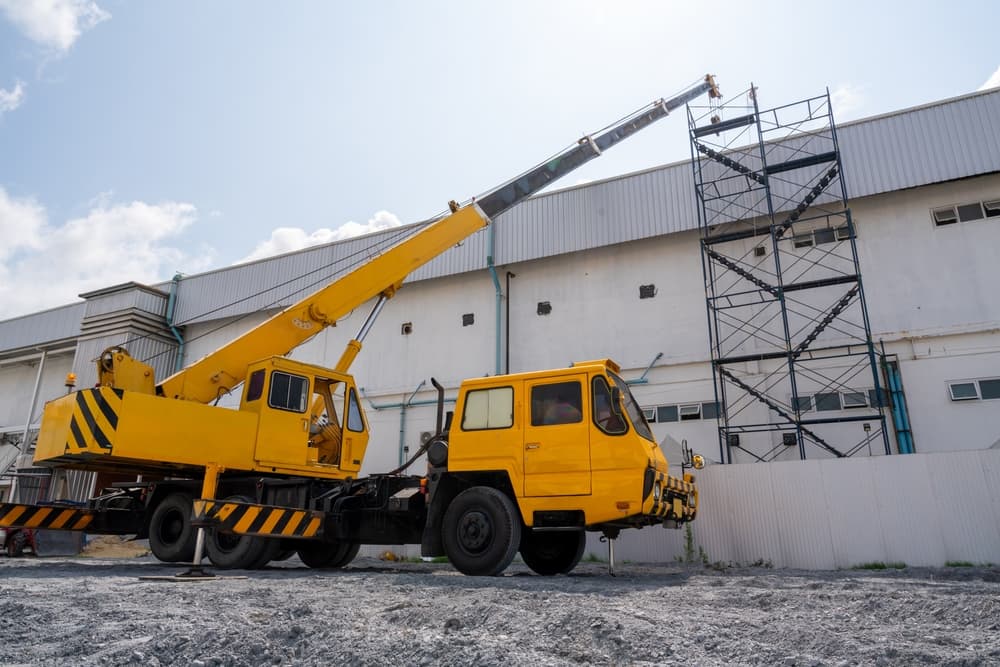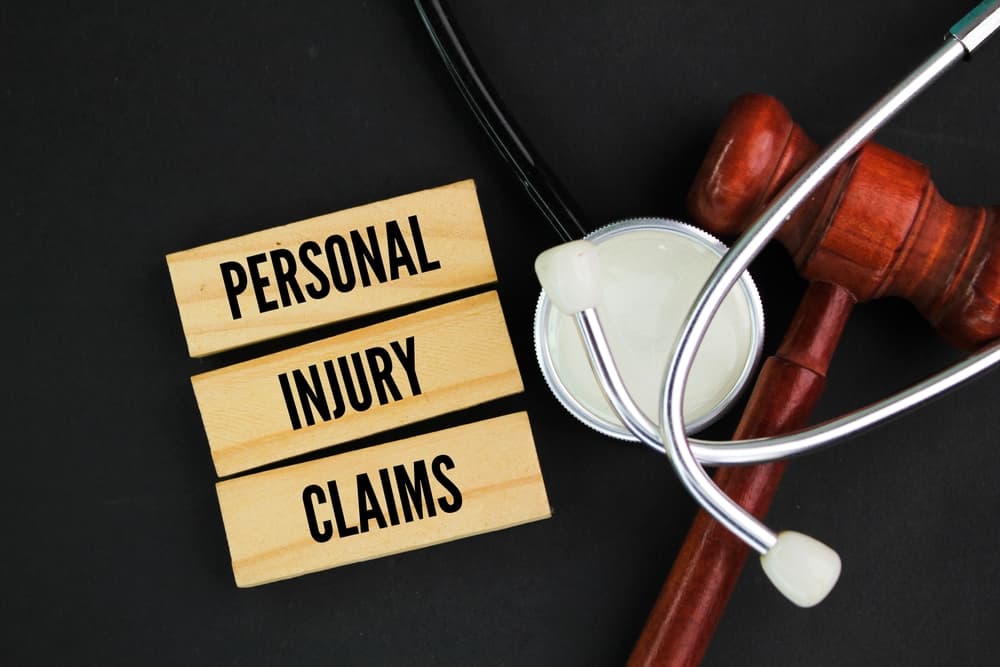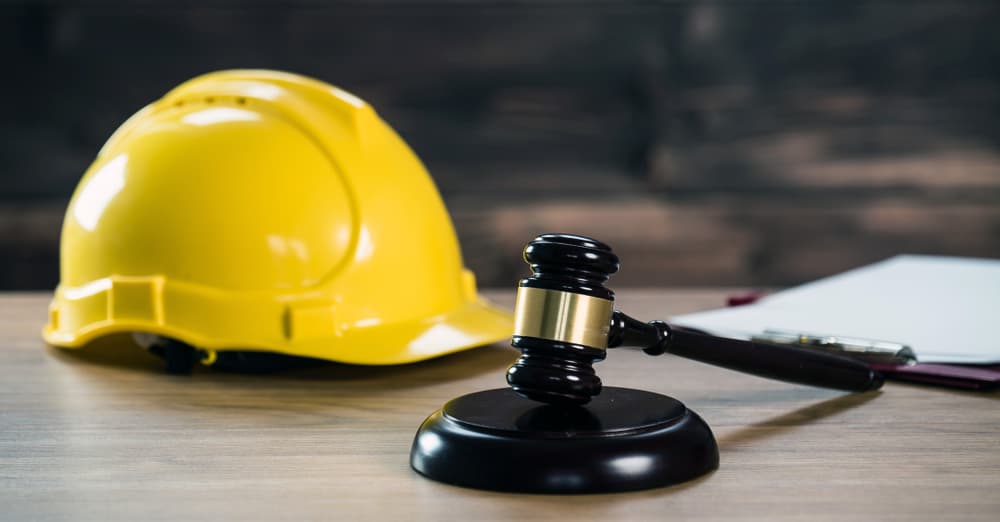Boom trucks are versatile vehicles used across various industries throughout New York City, Queens, and Long Island, including construction, utilities, and transportation. While they play a critical role in lifting heavy materials and providing elevated access, their operation carries significant risks, particularly when improperly maintained or used.
If you or someone you love has been injured in a boom truck collapse, you likely have questions about your rights, your recovery, and your options for securing compensation. At The Perecman Firm, our construction accident lawyers stand by injured construction workers and their families, working to deliver justice and hold wrongdoers accountable.
What Is a Boom Truck?
A boom truck is a specialized vehicle equipped with a hydraulic arm or "boom" designed to lift and transport heavy materials or workers at elevated heights. These vehicles are commonly used on construction sites for tasks like hoisting building materials, positioning workers for elevated tasks, and even assisting in rescue operations. While they are invaluable on job sites, their complexity and size make them inherently dangerous when safety protocols are ignored or equipment fails.
Where and How Are Boom Trucks Used?
Boom trucks are incredibly versatile and are utilized in various industries for tasks that require heavy lifting, precise placement, or elevated access. Below are some of the most common places and ways boom trucks are used:
Construction Sites

Boom trucks are a staple on New York City, Queens, and Long Island construction sites. Their ability to lift and transport heavy materials, such as steel beams, concrete blocks, or roofing supplies, makes them essential for large-scale projects. Workers may also use the boom to access elevated areas, like installing windows or working on facades.
Utility and Telecommunications Work
Utility companies commonly use boom trucks to service power lines, install transformers, or perform routine maintenance. In the telecommunications sector, they help technicians reach high poles or cables for repairs and installations.
Tree Removal and Landscaping
Arborists use boom trucks to trim tall trees, remove hazardous limbs, or take down entire trees in urban or suburban areas. The trucks provide a stable and secure way to access challenging heights safely.
Delivery and Logistics
In urban areas, boom trucks deliver and position heavy items, such as HVAC systems, industrial equipment, or large construction materials, directly to worksites or rooftops.
Film and Media Production
Boom trucks are even used in creative industries like film production. They provide elevated camera angles or assist in setting up lighting rigs for on-location shoots in places like Manhattan or Long Island.
Emergency and Rescue Operations
Firefighters and emergency responders use boom trucks for rescue operations, especially in urban areas where reaching high-rise windows or rooftops is critical.
How Do Boom Trucks Operate?
Boom trucks are fitted with hydraulic arms that can extend vertically and horizontally to lift and move heavy loads. Operators control the boom using levers or remote systems to position materials precisely where needed.
With a platform or bucket attached to the boom, these trucks can safely elevate workers to perform tasks at significant heights, such as repairing power lines or inspecting building exteriors. Unlike stationary cranes, boom trucks are mobile and can transport themselves to different locations, making them ideal for job sites requiring frequent repositioning.
Outriggers extend from the sides of the truck to stabilize it during operation. Proper stabilization is critical to prevent tip-overs, especially in New York City's tight and uneven urban environments.
Challenges and Risks in Boom Truck Use
While boom trucks are indispensable, their use comes with challenges. Poor maintenance, operator error, or inadequate stabilization can lead to accidents. In bustling areas like New York City, operators must also navigate additional hazards, such as crowded streets, overhead power lines, and confined workspaces.
Boom trucks are essential in diverse industries, but their complexity and potential for accidents underscore the need for strict safety measures and accountability. If you’ve been injured in a boom truck accident, you may have legal options to secure compensation for your losses. Experienced personal injury attorneys at The Perecman Firm offer a free consultation to discuss your case.
What Types of Accidents Involve Boom Trucks?

Boom trucks are involved in a variety of construction accidents. Some of the most common include:
- Boom collapses: The boom may collapse due to mechanical failure, overloading, or operator error, causing serious injuries to nearby workers or pedestrians.
- Tip-overs: If the truck is improperly stabilized, it can tip over while the boom is extended.
- Falling materials: Loads improperly secured to the boom can fall, striking workers or bystanders.
- Electrocutions: If a boom comes into contact with power lines, it can result in severe electrical injuries.
- Struck-by accidents: Workers on the ground may be struck by the moving boom or the truck itself.
Who Might Be Injured in a Boom Truck Accident?
Boom truck accidents can injure a wide range of individuals, including:
- Construction workers: Those operating or working near the boom truck are at the highest risk.
- Pedestrians: On busy New York construction sites, passersby can be injured if a collapse occurs near sidewalks or roads.
- Other workers: Crane operators, electricians, and laborers working near the boom truck may also be harmed.
What Types of Injuries Are Common in Boom Truck Accidents?
Injuries from boom truck accidents are often severe and life-altering, such as:
- Traumatic brain injuries (TBI)
- Spinal cord injuries and paralysis
- Broken bones and fractures
- Crush injuries
- Severe burns or electrocution injuries
- Lacerations and disfigurement
These injuries often result in extended hospital stays, rehabilitation, and lost income, leaving workers and their families overwhelmed.
What Type of Claim Can I File if I Was Injured by a Boom Truck?
If you’ve been injured in a boom truck accident, you may be eligible to file a workers’ compensation claim, a personal injury lawsuit, or both, depending on the circumstances. The personal injury attorneys at The Perecman firm understand the differences between these claims and will help you determine the best course of action to pursue compensation for your injuries.
Workers’ Compensation Claims
Workers’ compensation is a no-fault system designed to provide financial and medical support to employees injured on the job. If your boom truck accident occurred while you were performing your work duties, you likely qualify for workers’ compensation benefits. These benefits may include:
- Coverage for medical expenses
- Partial wage replacement for lost income
- Vocational rehabilitation if you’re unable to return to your previous job
While workers’ compensation can provide vital support, it has its limits. It does not cover non-economic damages like pain and suffering or emotional distress, which can leave workers without full compensation for the impact of their injuries.
Personal Injury Claims

If your injury was caused by negligence from a party other than your employer—such as a subcontractor, the boom truck manufacturer, or a property owner—you may have grounds to file a personal injury claim. This type of lawsuit can help you recover compensation for:
- Pain and suffering
- Emotional distress
- Loss of enjoyment of life
- Medical bills not covered by workers' compensation
- Full reimbursement for lost wages
Unlike workers’ compensation, personal injury claims require proving that another party’s negligence directly caused your injury. For example, if the boom truck collapsed due to a design flaw, you might file a claim against the manufacturer.
Can You File Both?
Yes, in some cases, you can pursue both a workers’ compensation claim and a personal injury lawsuit. This typically happens when a third party is partially or fully responsible for the accident. For instance:
- If the boom truck was defective, you could sue the manufacturer while still receiving workers’ compensation benefits from your employer.
- If a subcontractor’s negligence caused the accident, you might file a personal injury claim against them while also collecting workers' comp benefits.
Coordinating these claims carefully is essential to avoid complications, such as liens that the workers’ compensation insurer may place on your personal injury recovery. Don’t try to handle this on your own.
Why You Should Speak to a Lawyer
Navigating the complexities of workers’ compensation and personal injury claims can be overwhelming, especially when you’re recovering from serious injuries. A lawyer experienced in construction accidents and other work incidents where boom trucks operate can help you determine the appropriate type of claim, gather evidence to prove negligence and ensure you receive the maximum compensation available under New York law.
At The Perecman Firm, we work tirelessly to protect injured workers and their families and passersby and pedestrians who may be involved in these accidents while holding negligent parties accountable. Reach out today to learn how we can help.
Filing a Claim: What’s the Process?
An attorney will guide you through the process to ensure you meet all the requirements to file a claim. There are some differences depending on the type of claim you are able to file.
Workers’ Compensation Claim
- Notify your employer: In New York, you must notify your employer within 30 days of the accident.
- File a claim: Submit a workers' compensation claim (Form C-3) to the New York Workers' Compensation Board.
- Obtain medical treatment: Use an authorized provider within the workers’ compensation system.
Personal Injury Claim
- Consult a personal injury lawyer: Your lawyer will handle the legal complexities, including investigating the accident and gathering evidence.
- Establish liability: Your attorney will identify and prove negligence by the responsible party.
- File the lawsuit: In New York, you have three years from the date of the accident to file a personal injury claim.
Who Might Be Held Liable in a Boom Truck Accident?
Determining liability in a boom truck accident requires a thorough investigation. Potentially liable parties include:
- The employer: If inadequate training or improper maintenance contributed to the accident.
- The manufacturer: If the truck or its components were defective.
- A subcontractor: If their actions created unsafe conditions.
- The property owner: If hazards on the property led to the accident.
Your lawyer will establish liability by examining maintenance records, interviewing witnesses, consulting with experts, and reconstructing the accident.
New York Laws Governing Boom Truck Operation and Accidents
New York’s Labor Law Section 240, known as the "Scaffold Law," provides special protections for construction workers injured in height-related accidents, including boom truck collapses. This law holds property owners and contractors strictly liable for ensuring proper safety measures, such as providing adequate training and equipment.
Additionally, the New York Industrial Code outlines specific requirements for boom truck operation, including stabilization procedures, load limits, and inspection protocols. Violations of these regulations can be used as evidence of negligence in a personal injury claim.
Statute of Limitations for Personal Injury Claims in New York
If you were injured in a boom truck accident, you generally have three years from the date of the accident to file a personal injury lawsuit in New York. For workers’ compensation claims, the timeline for filing is shorter—typically two years. Missing these deadlines can prevent you from recovering compensation, so consulting a lawyer promptly is essential.
Why You Should Contact a Construction Accident Lawyer

Recovering from a serious boom truck accident is hard enough without the added stress of navigating legal processes. When you contact The Perecman Firm, we take the burden off your shoulders. Our team will investigate the accident, gather evidence, and advocate fiercely on your behalf. While you focus on healing, we’ll focus on securing the maximum compensation you deserve.
Let The Perecman Firm Fight for You
At The Perecman Firm, we’ve spent decades fighting for injured construction workers and their families across New York City, Queens, and Long Island. We believe in delivering justice and holding bad actors accountable, no matter how tough the fight.
If you or a loved one has been injured in a boom truck collapse, we’re here to help. Contact us today for a free consultation. Let us make things right.
Call our New York City office at 212-977-7033, our Queens, NY, office at 718-587-0108, or our Jericho office on Long Island at 516-268-0130. You can also contact us online.